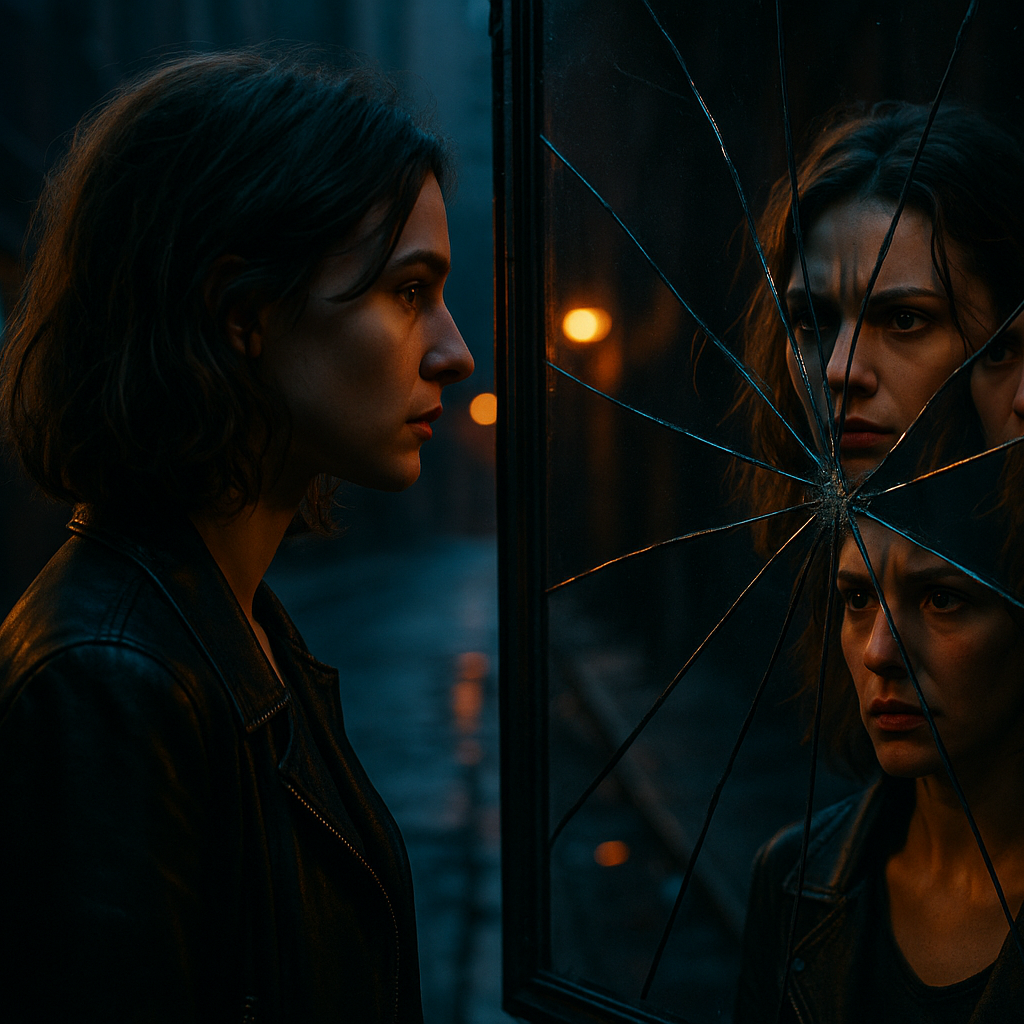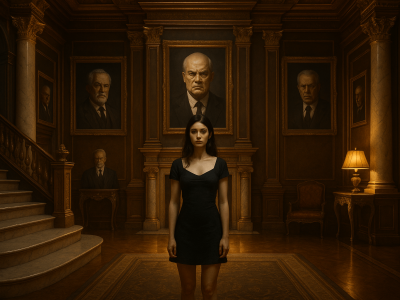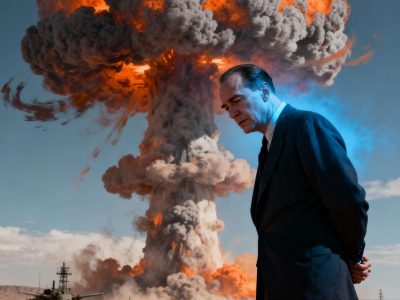We often label people and actions as either right or wrong. But is life truly that black and white? The film Anora, with its morally ambiguous characters and situations, asks just that. It presents a world where right and wrong are not easily defined, where betrayal and love intermingle, and where every decision seems to carry both light and shadow. Anora, which won recognition at the 97th Academy Awards, reflects a harsh reality that mirrors our own moral dilemmas. But how much of what happens on screen resonates with the decisions we make in real life?
In a world where ethical decisions are becoming increasingly complex, the film offers a thought-provoking lens through which to examine how blurred the lines between good and bad can be, both in the lives of individuals and in society at large. Anora is not simply a narrative about love and betrayal but rather an exploration of moral ambiguity that challenges conventional notions of victimhood, responsibility, and guilt. Through its characters, Ani and Vanya, the film explores how social and economic pressures influence moral choices, pushing us to reconsider the labels we assign to people based on a limited understanding of their circumstances.
The role of moral ambiguity in storytelling
One of the main reasons Anora stands out is its ability to present characters who exist within moral gray areas. Ani, a 23-year-old stripper living in a Russian-American neighbourhood in Brooklyn, is introduced as a woman grappling with her past and her aspirations for a better future. Yet, her actions, working as a sex worker to make ends meet, accepting money for her time, and eventually marrying Vanya, are clouded by the very society that limits her choices. On the other hand, Vanya, a young man from a powerful Russian oligarch family, behaves recklessly and lacks maturity, yet is constantly pressured by his family to make choices he is not equipped to handle.
Their relationship becomes the canvas for moral debate. Is Ani justified in accepting Vanya’s money for her company, or is she merely a victim of circumstance? Is Vanya an innocent, naïve young man, or is he simply an extension of his privileged background, incapable of making mature decisions? These questions underscore the film’s exploration of moral ambiguity, where characters are not neatly categorized as either heroes or villains. Instead, their choices are shaped by the complex intersection of love, desperation, and societal expectations.
In the context of modern cinema, films like Anora are increasingly popular because they reflect the complexities of human behaviour. The notion that a character is either entirely virtuous or completely villainous seems increasingly outdated. Real-life decisions are rarely black or white, and this film reflects that reality with precision and nuance.
The ethical dilemma of Ani and Vanya
At the heart of Anora lies the ethical dilemma between Ani and Vanya, which is tied to both personal and external pressures. Ani, at first, is a victim of her circumstances, struggling to make a living in a world that devalues her body and choices. Yet, as her relationship with Vanya unfolds, her decisions become increasingly morally questionable. She marries him impulsively, despite her skepticism, only for her hopes to be dashed when his family intervenes, revealing their true feelings towards her.
The question then arises: Can Ani be blamed for her decisions? Or was she a victim of the oppressive systems around her, such as society, the patriarchy, and even Vanya’s family, who view her not as a person but as a commodity? Similarly, Vanya’s actions throughout the film reflect a moral conflict of his own. He is pressured by his family to annul the marriage and continue the family legacy, yet he cannot seem to assert his autonomy. Is he simply a product of his privileged upbringing, unable to understand the weight of his decisions, or is he complicit in the harm done to Ani?
The ethical dilemma here reflects broader questions of morality in real life. Often, individuals make decisions based on their circumstances, whether it’s poverty, familial pressure, or the weight of societal expectations. In many cases, these choices are driven less by a desire for personal gain and more by survival instincts, which complicates how we judge others. In the case of Anora, both Ani and Vanya’s actions can be understood as products of the systems they are trapped within, highlighting the challenge of defining clear moral boundaries.
The real-world parallel: Leadership and morality
The moral ambiguity depicted in Anora is not confined to the fictional world of the film. In fact, it mirrors many of the moral dilemmas facing leaders and individuals in real life today. Global conversations about ethics, leadership, and morality are becoming increasingly relevant, particularly as political, social, and personal actions often seem to exist in a gray area. The film provides an opportunity to discuss these topics in the context of leadership in society. How do politicians, corporate leaders, and other influential figures make moral decisions, especially when their choices have far-reaching consequences for others?
For example, the debate around corporate responsibility and environmental impact often centres on the balance between profit and ethical practices. Should leaders be judged solely by their financial success, or should they be held accountable for the long-term consequences of their actions? In a similar vein, the ethical questions raised by Anora invite us to reconsider how we view the decisions of public figures. Is a politician who takes a controversial stand to gain power any less morally ambiguous than Vanya, who marries Ani to escape his family’s control?
Recent events, such as the continued global debates on wealth inequality and the responsibility of tech companies towards user privacy, echo the themes of Anora. Just as Ani is torn between her survival and her personal morals, leaders today often face the same dilemma, make decisions that benefit them or their companies, or make ethical choices that could harm their power or profits.
Breaking down the morality of film
The film’s focus on moral ambiguity is not just a narrative device but a reflection of the real world. Anora encourages viewers to confront the uncomfortable reality that no one is entirely innocent, and no one is entirely guilty. Every action carries consequences, but the motivations behind them are often more complicated than we first assume. The audience is forced to grapple with the idea that sometimes, the “right” decision is not always clear, and that what may seem like an unethical action might be the result of a much larger set of circumstances beyond an individual’s control.
The 97th Academy Awards highlighted films that challenge conventional thinking. Anora was a prime example of how film can be used as a mirror to examine our collective moral compass. It invited viewers to reconsider the black-and-white views they may have of individuals, particularly those in positions of power. But it also raised the question of what makes an action truly immoral. Is it the consequence, or the intent?
A call for nuanced understanding
As society grapples with complex issues like social inequality, economic disparity, and political unrest, the message of Anora becomes ever more relevant. The film suggests that to fully understand the actions of others, we must be willing to look beyond simple categories of good and evil. Instead, we must be willing to examine the intricate web of motives, pressures, and circumstances that shape each decision. Only then can we begin to approach moral questions with the nuance and understanding that they deserve.
The moral ambiguity in Anora forces us to ask: Are we, as a society, too quick to judge others based on their actions without considering the larger forces at play? And how does this affect our views on leadership, politics, and justice?
In the end, Anora reminds us that morality is often not a clear-cut issue, but rather a complex and multifaceted one, shaped by a multitude of factors. The film calls on us to expand our perspectives, to question assumptions, and to embrace the gray areas of life, in the hope of fostering a more empathetic and thoughtful society.







